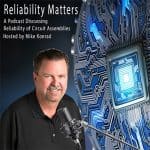
What are ‘Cut Sets’?
podcast episode with speaker Chris Jackson
Reliability engineers are often taught about ‘cut sets.’ But we rarely use them. Many reliability engineers don’t know what they are. But they are also in lots of textbooks as if they are really important. So what are they? The good news is that they are pretty simple to understand. The bad news is that they can be difficult to find. Mercifully, they are mainly used by computers who do the hard work of calculating system reliability for us. So knowing what ‘cut sets’ are can be really informative … even if you don’t use them every day.
[Read more…]







 Ask a question or send along a comment.
Please login to view and use the contact form.
Ask a question or send along a comment.
Please login to view and use the contact form.